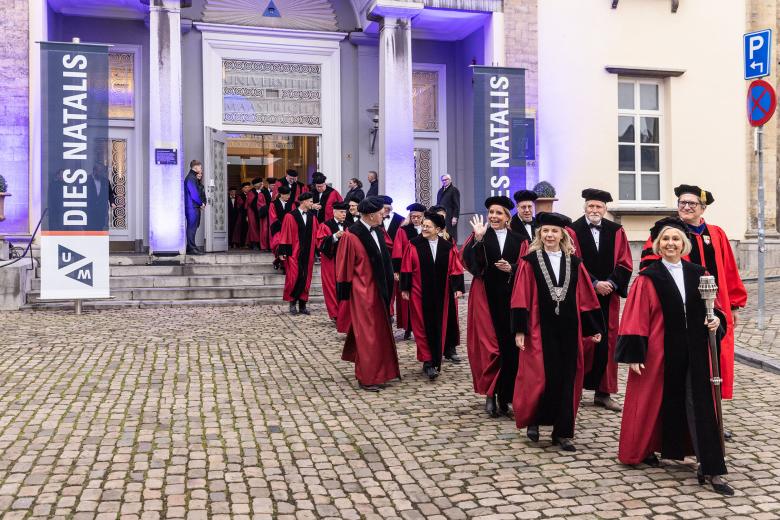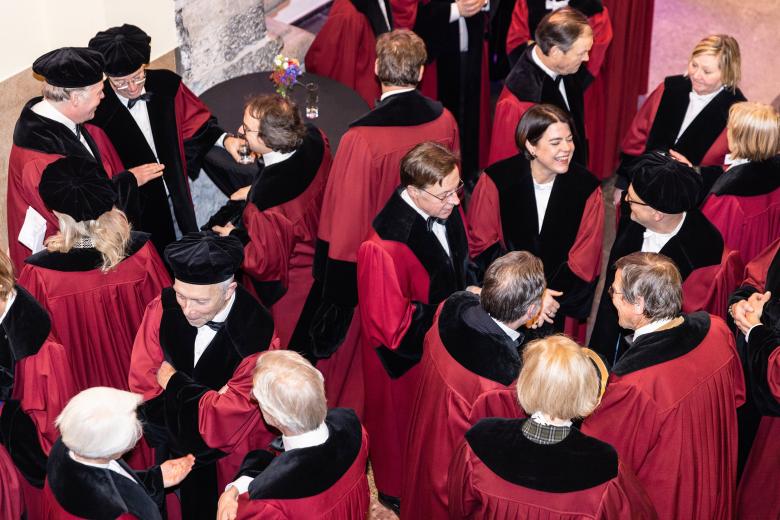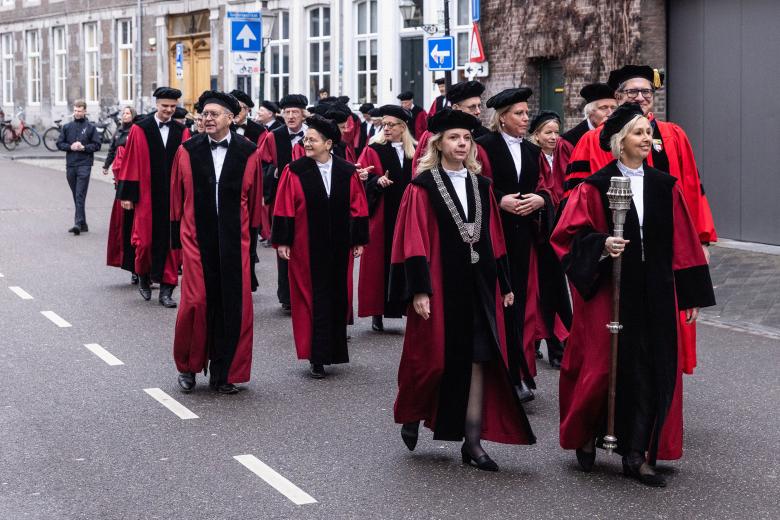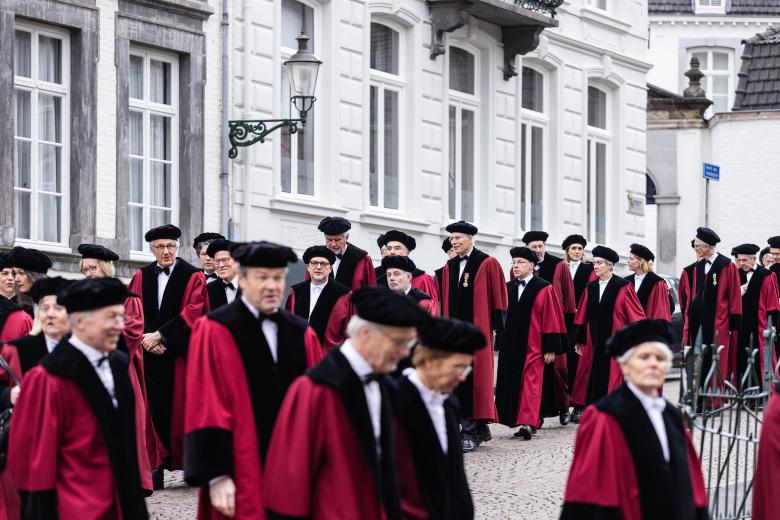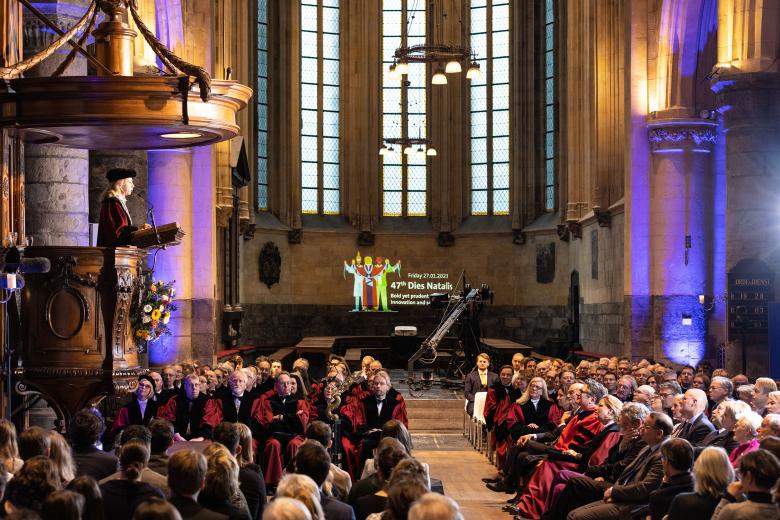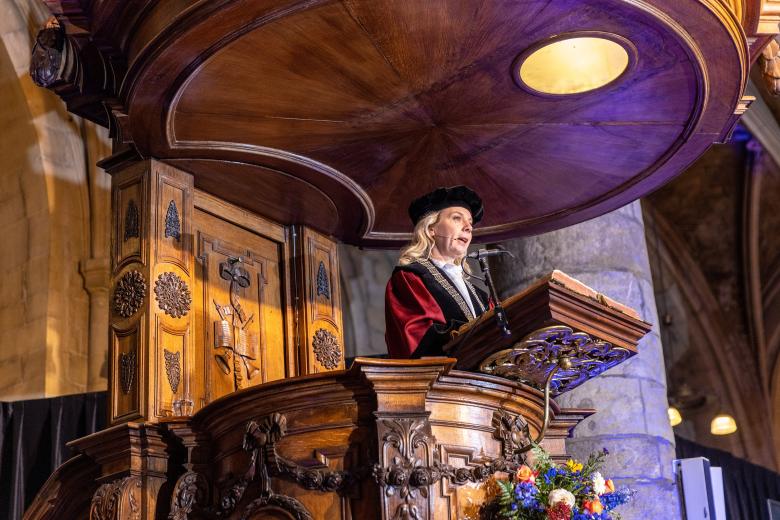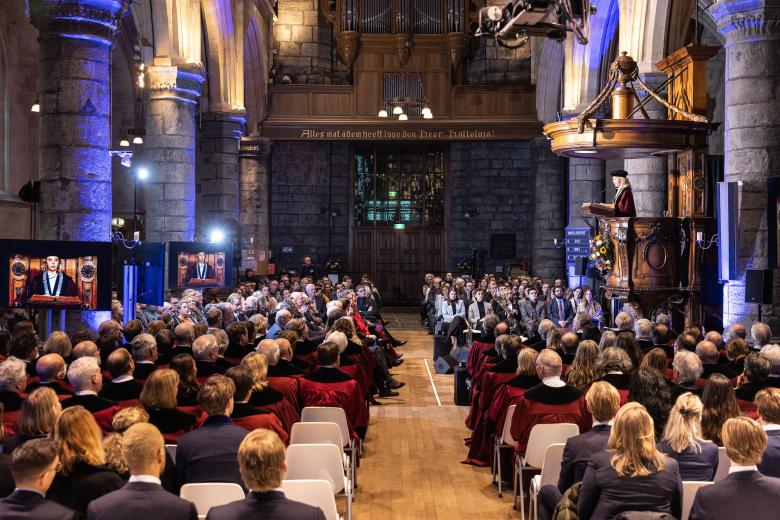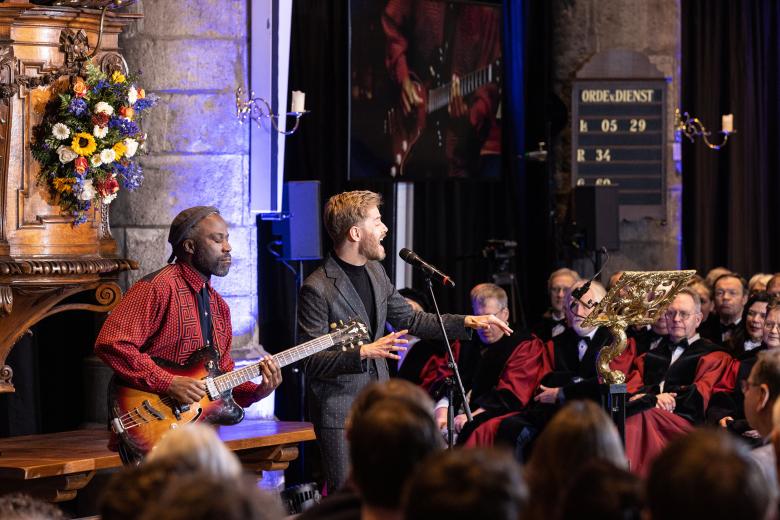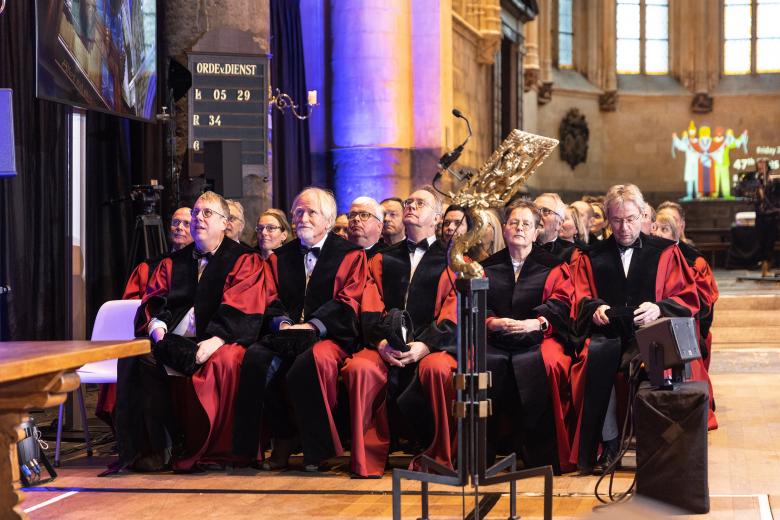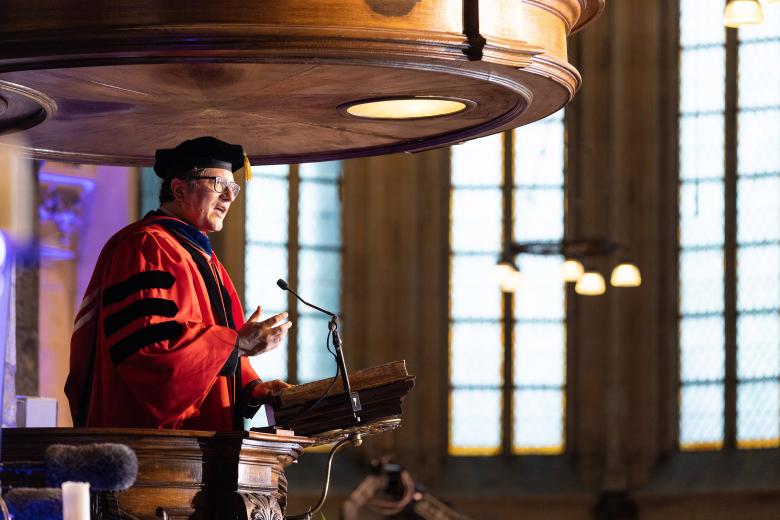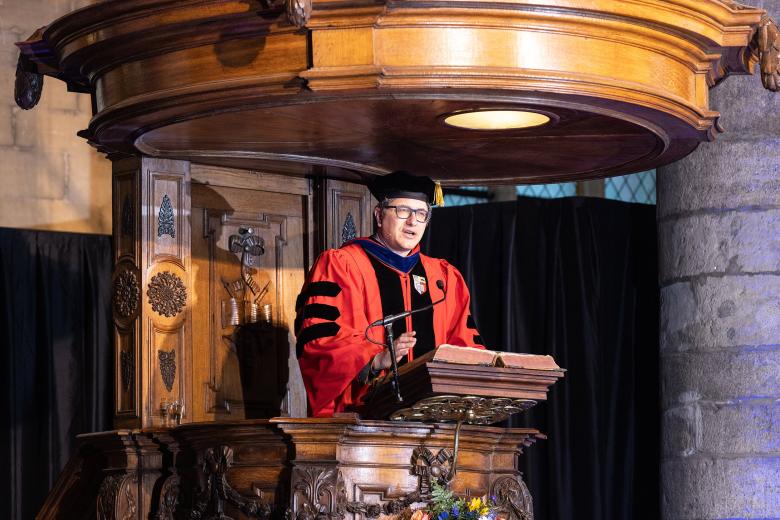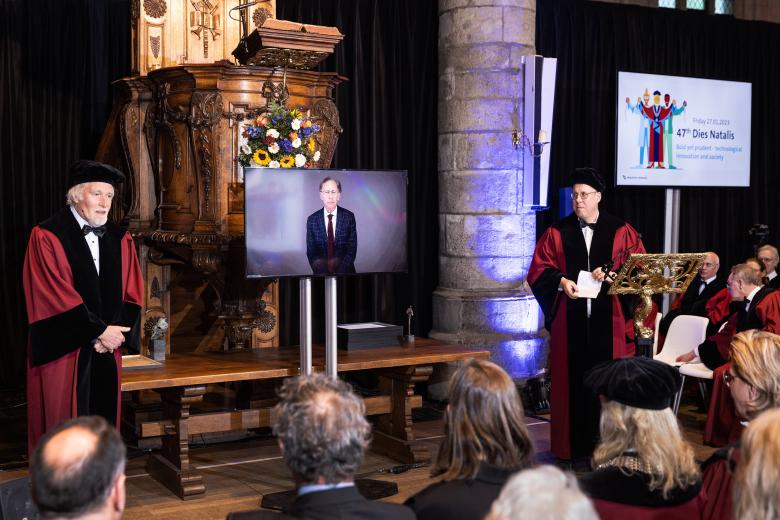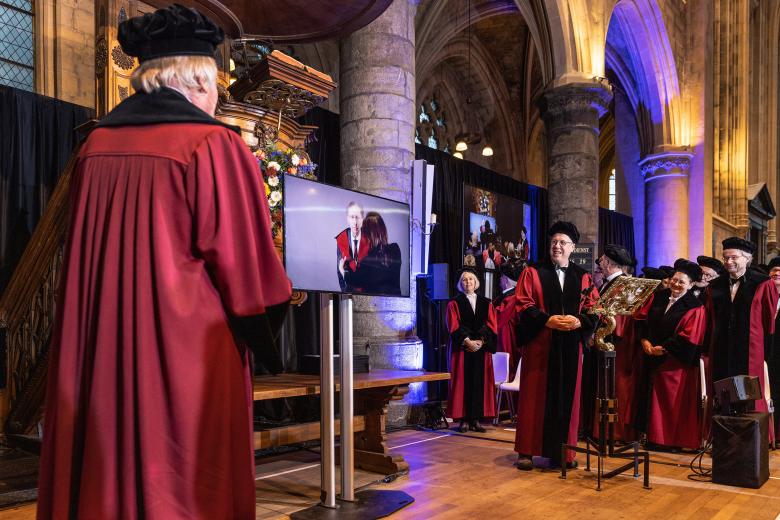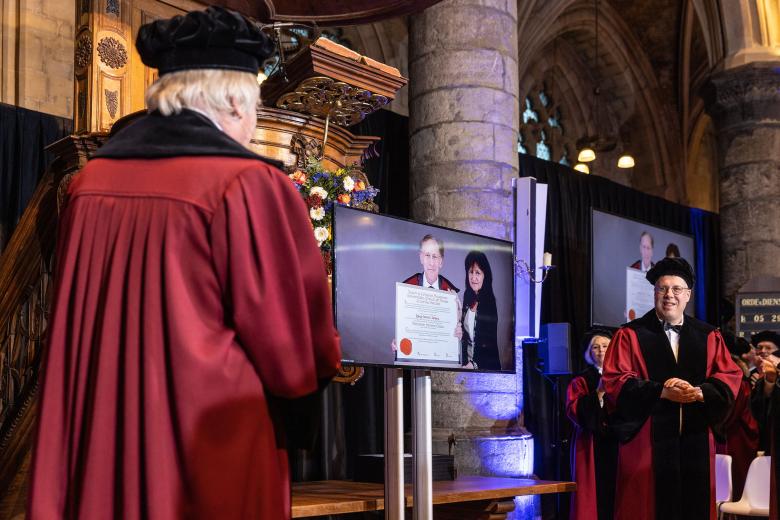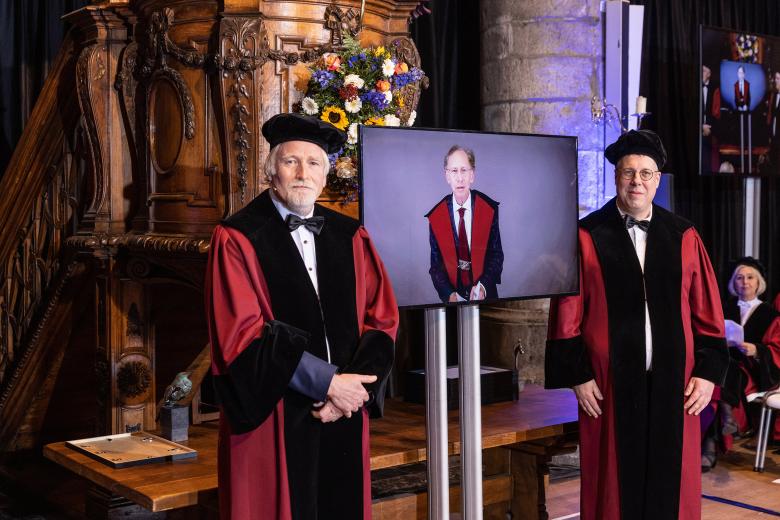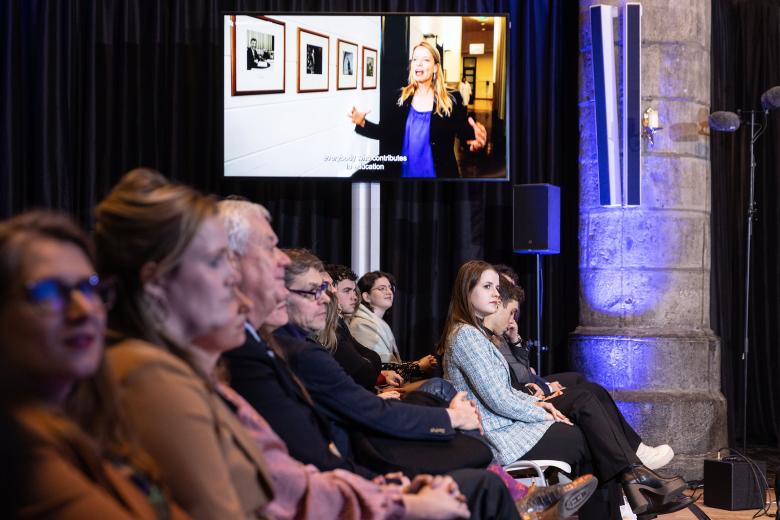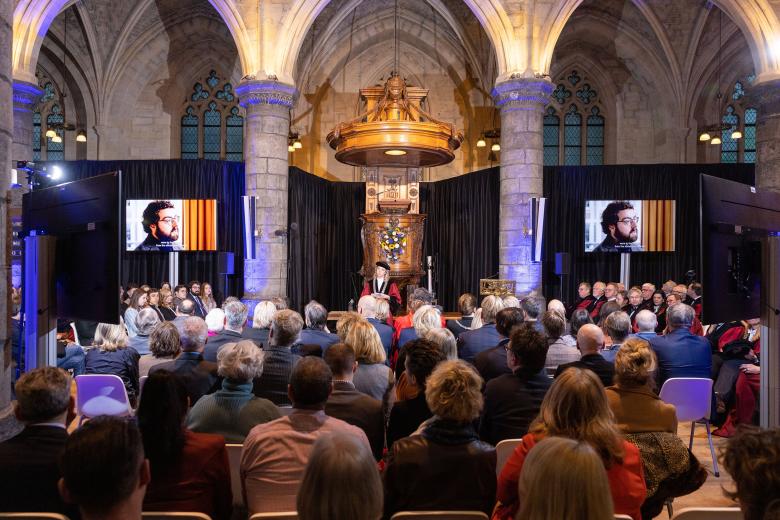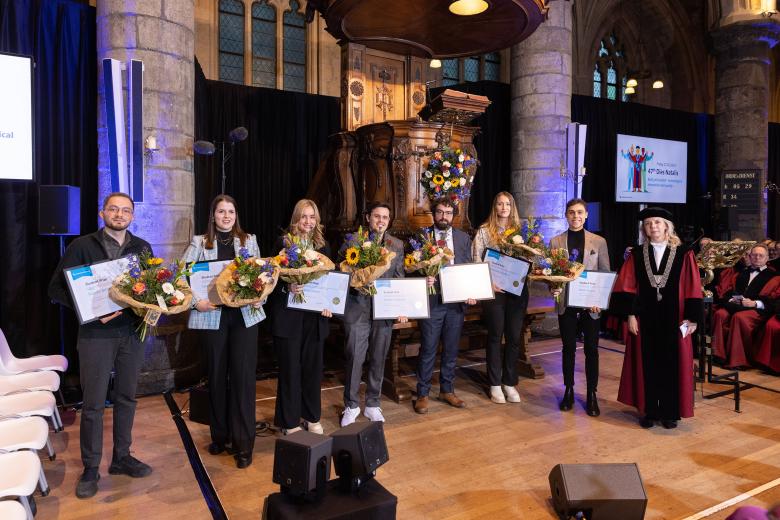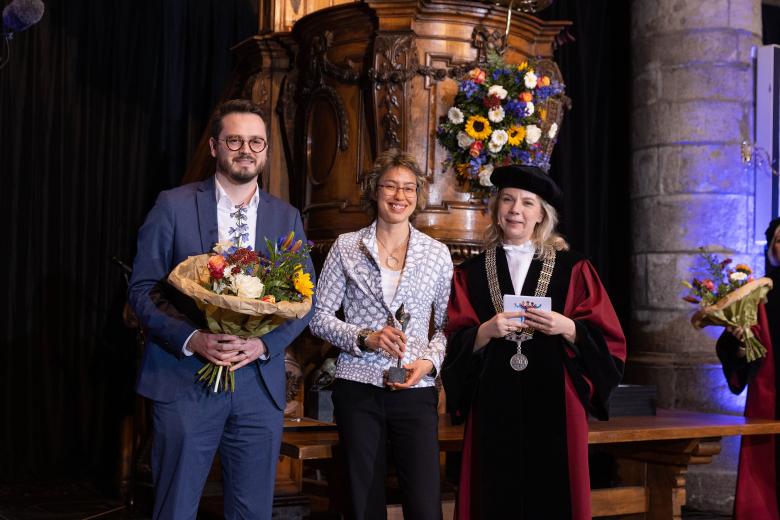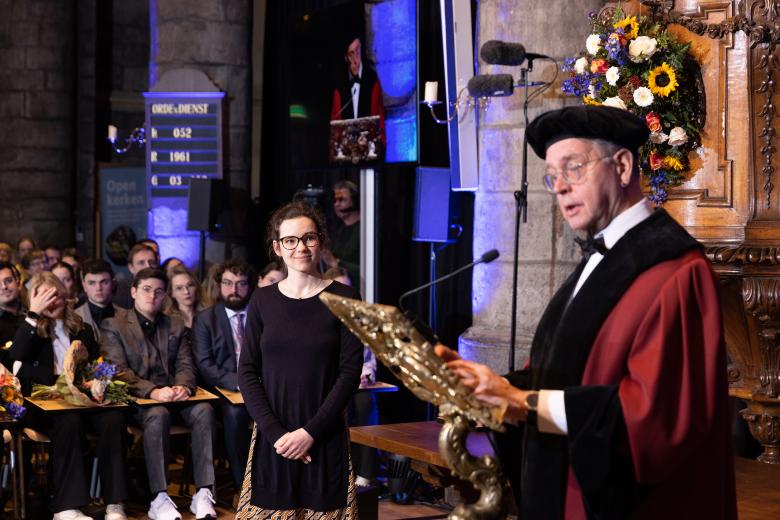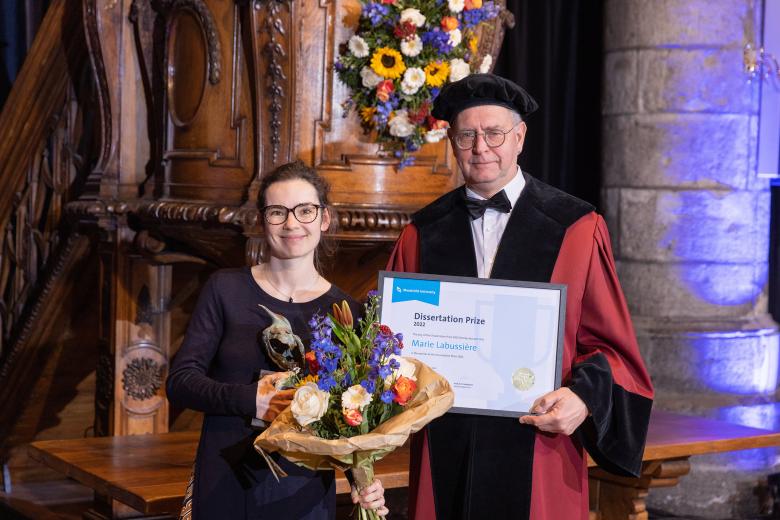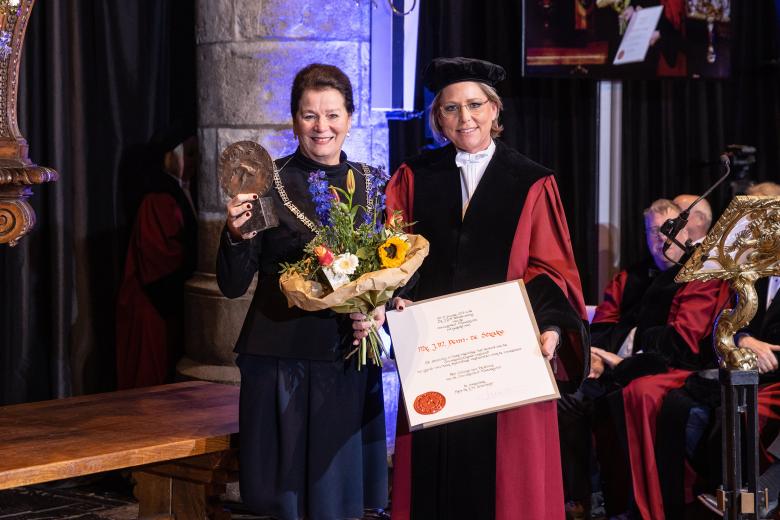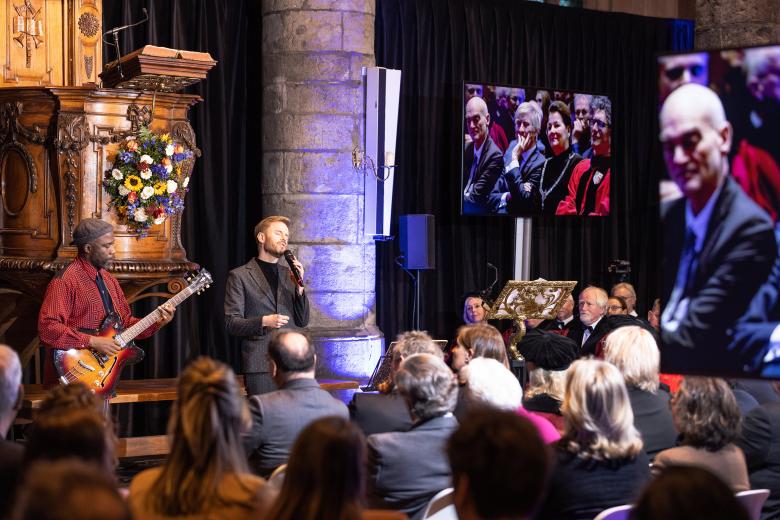47th Dies Natalis: an overview
Maastricht University celebrated its 47th Dies Natalis on Friday 27 January 2023, in the Sint Jans Church in Maastricht. Jazz and pop singer Wouter Hamel and guitarist Rory Ronde provided wonderful musical interludes. We listened to inspiring speeches and awarded the honorary doctorate, the Wynand Wijnen Education Prize, the Dissertation Prize and the Master’s Student Prizes. In the morning, several students had received the Bachelor’s Student Prizes.
We also surprised the outgoing mayor of Maastricht, Annemarie Penn-te Strake, with the presentation of the Tans Medal, UM's highest distinction. This year’s Dies Natalis was her last official academic ceremony as mayor.
Read more about the event
Enjoy a slideshow of pictures made during the event
Watch the videos of the 47th Dies Natalis
Find out all about this year's awards
Meet the winners of the 2022 Student Prizes
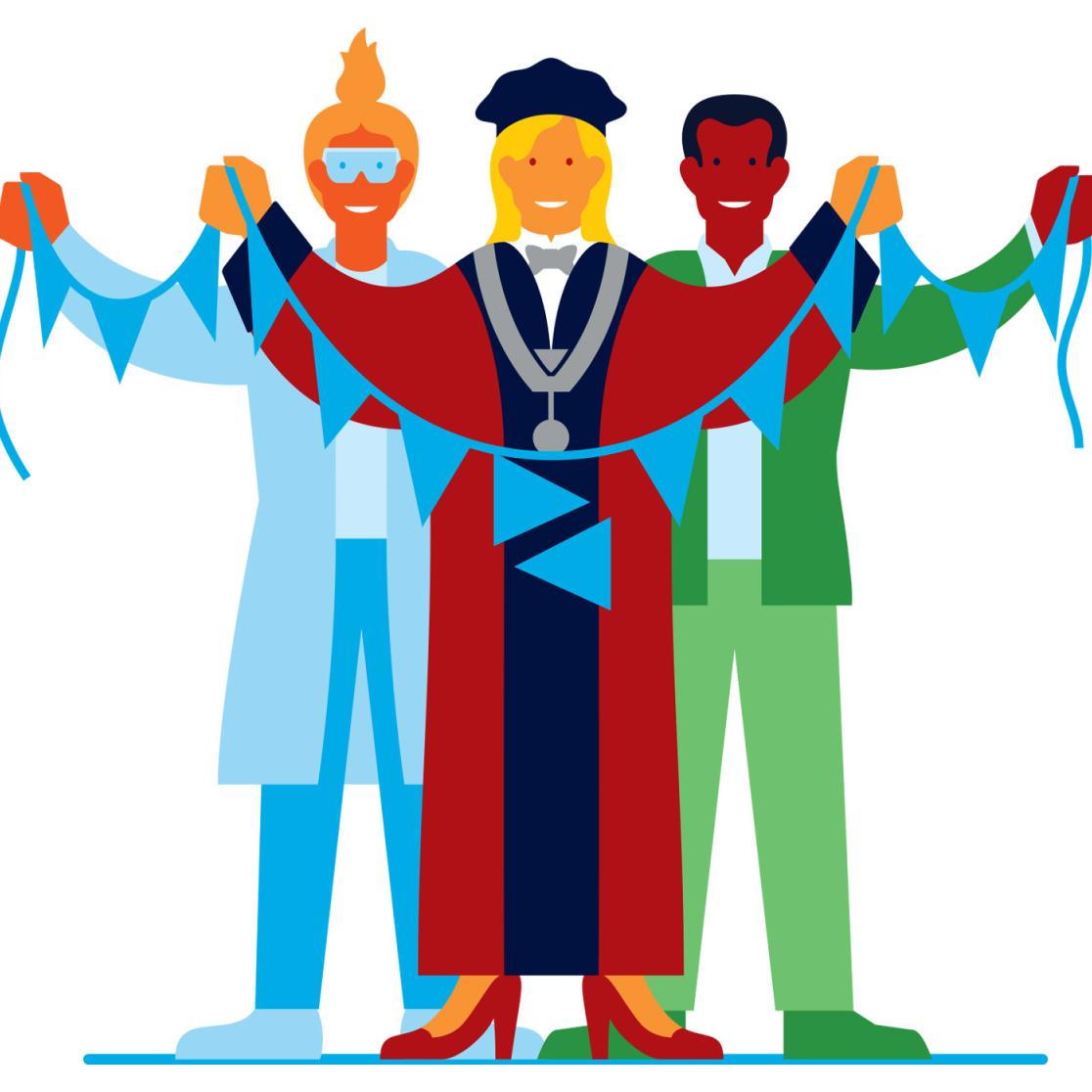
Bold yet prudent: technological innovation and society
Our rector, Prof. Pamela Habibović, kicked off the celebrations with a speech in line with this year’s theme: ‘Bold yet prudent: technological innovation and society’. She spoke about the importance of interdisciplinarity in science and technological innovation. “We stand on the event horizon of world-changing technological innovations – and we can’t afford to be naïve. We have to think through the potential threats and implications at the design stage already. Interdisciplinarity is a key to this.”
Prof. Robert S. Langer is living proof of that. He is known for his discoveries in tissue engineering and drug delivery. An interdisciplinary expert, he received an honorary doctorate at this Dies Natalis for his exceptional work. In his speech, he looked back on his difficult early years, but stressed that he never gave up: "I received a lot of criticism and was even named a bad scientist. Yet, together with my colleagues and students, I founded 40 companies to get our discoveries to patients. Today, our concepts have become the cornerstone of tissue engineering and regenerative medicine."
"We stand on the event horizon of world-changing technological innovations – and we can’t afford to be naïve."
Pamela Habibović, rector magnificus Maastricht University
Prof. Cyrus Mody of the Faculty of Arts and Social Sciences built on the importance of technological innovation in science in his keynote lecture on 'The Four Sciences'. His most important message: “The university can make a distinctive contribution to knowledge and innovation, but only if we work in healthy cooperation and sometimes healthy contestation with other sides that have their distinctive contributions to make.” He zoomed in on four forms of science and explained how they can work together: each doing what they do best while engaging with the others.
"The university can make a distinctive contribution to knowledge and innovation, but only if we work in healthy cooperation and sometimes healthy contestation."
Cyrus Mody, Professor in the History of Science, Technology, and Innovation
Impressions from the 47th Dies Natalis
Click the icon above to view the entire series.
Photos: Philip Driessen.
Video of the 47th Dies Natalis
Special award for mayor Annemarie Penn-te Strake
Executive Board chair Rianne Letschert presented this year's special Tans Medal to mayor Annemarie Penn-te Strake: only individuals who have made a significant contribution to the development of Maastricht University receive this medal. "Your belief in the power of a well-developed and internationalised university and its importance for our city and province is amazing. We shared the vision that Maastricht is not only a beautiful old city, but also a student city. With that, you were an excellent ambassador and advocate for Maastricht University", Letschert said.
Annual awards
This year's Wynand Wijnen Education Prize was presented to our entire education community in recognition of their tireless efforts, particularly during the recent COVID years. Donna Carroll and Martijn Boussé symbolically accepted the award. The prize money goes to the Emergency Fund for Students.
The annual Dissertation Prize went to Marie Labussière of the Faculty of Arts and Social Sciences for her thesis: 'Native-born but not yet citizen: Citizenship and educational outcomes of children of immigrants in the Netherlands.’
Student Prizes 2022
Bachelor's Student Prizes
Nineteen students completed their bachelor's degree in 2022 with a thesis that was labelled excellent by their faculty.
Master's Student Prizes
Nine students completed their master's programmes in 2022 with a thesis that was labelled excellent by their faculty.
